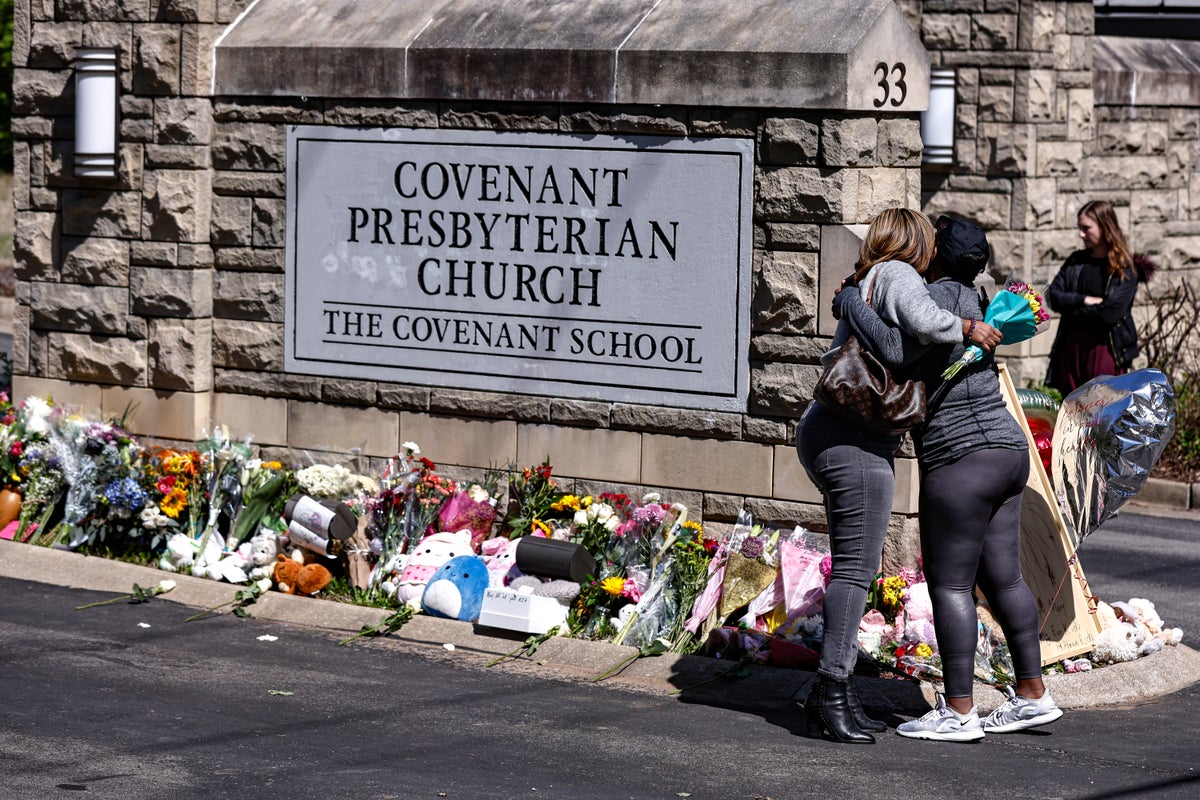
Tennessee Gov. Bill Lee on Tuesday unveiled a sweeping list of public safety issues he wants lawmakers to address during an upcoming special session prompted by a shocking Nashville school shooting earlier this year that resulted in the deaths of three children and three adults.
The proclamation includes 18 different topics the Republican governor wants lawmakers to consider, such as mental health, gun storage and school safety policies. But notably, it allows lawmakers to discuss Lee's proposal to limit dangerous people's access to guns.
“As our nation faces evolving public safety threats, Tennessee remains vigilant and is taking continued action to protect communities while preserving the constitutional rights of law-abiding citizens,” Lee said in a statement, adding that he has worked with the General Assembly to identify “practical measures to strengthen public safety."
Earlier this year, Tennessee's GOP-dominated Statehouse refused to consider tightening the state's relaxed gun laws in the days following a shooter opening fire at The Covenant School, a private elementary school in Nashville. Instead, legislative leaders hustled to adjourn and ignored the pleas from distraught families to enact meaningful change surrounding gun control
Despite the Legislature's initial defiance, Lee promised he would convene a special session and stressed that lawmakers needed more time to listen and discuss his proposal.
Yet in the weeks since, Lee has remained mum on whether he has enough support for his bill that would keep guns away from people deemed likely to pose a threat to themselves or others. Lee has also maintained his proposal is not a so-called red flag law, which he has described as a “toxic political label meant to draw lines in the sand.”
To date, 19 states have red flag laws on the books — many enacted after tragedies. Florida notably did so after the deadly 2018 mass shooting at Marjory Stoneman Douglas High School in Parkland. Law enforcement officials had received numerous complaints about the 19-year-old gunman’s threatening statements prior to shooting and killing 17 students.
The laws, which allow courts to issue “extreme risk protection orders,” are intended to temporarily remove guns — usually for up to a year — from people showing signs of potentially violent behavior. In many cases, family members or law enforcement must petition a court for an order.
GOP leaders and gun rights advocacy groups have encouraged Lee to abandon the special session, and others have publicly declared their resistance to supporting any sort of gun control measure. On the other hand, parents of students at Covenant, gun control advocates and Democratic lawmakers have pushed for firearms restrictions in hopes of preventing another deadly tragedy. Both sides have bought numerous advertisements ahead of the special session, which kicks off Aug. 21.
Shortly after Lee released the broad proclamation, Democratic leaders pushed back, saying it falls short.
“For such a broad call, this proclamation somehow manages to miss the target," Democratic state Rep. John Ray Clemmons said in a statement. "Gov. Lee has again wilted in the face of the legislative supermajority. The winners here are special interests and extremist legislators holding our state hostage. The clear losers are Tennessee families and school children.”
The fight this spring over whether to change Tennessee’s gun laws was further heightened when Republicans expelled two young Black lawmakers, both Democrats. Reps. Justin Jones and Justin Pearson were expelled over a breach of decorum rules for their protest on the House floor, where they called for the GOP to pass gun control measures after the school shooting. Their white colleague who joined them in protest, Democratic Rep. Gloria Johnson, was spared by a single vote.
After Pearson and Jones reclaimed their seats in special elections last week, former U.S. Attorney General Eric Holder sent a letter Monday to House Speaker Cameron Sexton on Jones’ behalf seeking confirmation that Jones will be restored to his committee assignments in time for the special session. Sexton has previously said that lawmakers who are appointed aren’t given committee seats until they are elected.
In a statement, Sexton said no committee decisions have been made yet for the Aug. 21 special session, saying he will announce those assignments during that week.
Sexton and other legislative leaders added in a separate statement that they are looking forward to "the opportunity to strengthen public safety and mental health resources without infringing on the rights of law-abiding Tennesseans.”






